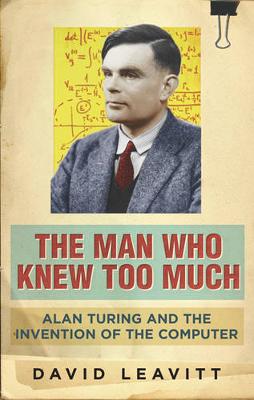Great Discoveries
1 primary work
Book 0
To solve one of the great mathematical problems of his day, Alan Turing proposed an imaginary programmable calculating machine. But the idea of actually producing a "Turing machine" did not crystallize until he and his brilliant Bletchley Park colleagues built devices to crack the Nazis' Enigma code, thus ensuring the Allies' victory in World War II. In so doing, Turing became a champion of artificial intelligence, formulating the famous (and still unbeaten) Turing Test that challenges our ideas of human consciousness. But Turing's postwar computer-building was cut short when, as an openly gay man in a time when homosexuality was officially illegal in England, he was apprehended by the authorities and sentenced to a "treatment" that amounted to chemical castration, leading to his suicide. With a novelist's sensitivity, David Leavitt portrays Turing in all his humanity-his eccentricities, his brilliance, his fatal candor-while elegantly explaining his work and its implications.
